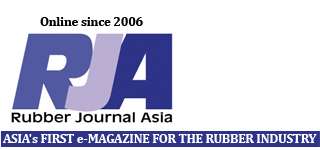German TPE specialist Kraiburg TPE’s Thermolast M product range will soon be used in medical products made in Bolivia – Matriplast S.A. based in La Paz will use this advanced product to manufacture high-quality infusion bag closures for the South American market.
Certified for medical applications in most countries (USP Class VI, USP 661, ISO 10993-5, -10 and -11, as well as a Drug Master File), the product can be processed very efficiently and hygienically. The TPEs can be sterilised in hot steam up to 135 °C and are available in hardness grades between 35 and 45 Shore A. Moreover, they have resealing properties, which makes them of course predestined for use in infusion bags: As the TPE diaphragm is extremely elastic, it immediately seals the septum when the infusion line is removed from the bag.
“For this sophisticated medical product, I wanted to use the best available compounds. And these were available from Kraiburg TPE. With this partner, I knew that I could rely on the most stringent safety and quality standards,” explains Javier Alcoreza, managing director of Matriplast S.A.
Manfred Lautenbacher, who is the person responsible at KRAIBURG TPE for the Matriplast account is also full of praise: “This cooperation with a company in Bolivia is an excellent example of the benefits of our global network of sales agencies. Quality made in Germany is in great demand with customers everywhere, and we can provide this across the world.”
In contrast to a conventional septum made in rubber, TPE has the added advantage that it can be processed by two-component injection moulding bonded with PE and PP. There is thus no need for the manual assembly of the rubber bag closures, so that time and money can be saved while the risk of non-conforming bags is minimised. The new solution also does away with costly storage of the closure components and contamination of the septum is simply impossible. While rubber components always pose a risk of contamination with potentially hazardous substances produced in the chemical reaction, such contamination cannot occur with thermoplastic elastomers, as they are not cross-linked. All these factors ensure best possible hygiene for medical technical products.
